Share
![cover art for [Conversation #9] How a LIST spin-off is setting a precedent in respiratory pollutant detection](https://open-images.acast.com/shows/661d0fcfaed7bb0016f5d03b/1713186766683-abeda7875c650d07c51d550cadf5ce71.jpeg?height=750)
Tech Advantage
[Conversation #9] How a LIST spin-off is setting a precedent in respiratory pollutant detection
Season 1, Ep. 11
•
In this episode of Tech advantage, we speak with Arno Gutleb, Environmental Health Group leader at LIST and Managing Director at Invitrolize, about his journey into creating a spin-off, which is pioneering in detecting chemical respiratory allergens early in product development.
More episodes
View all episodes

Welcome to Tech Advantage
01:00||Season 0, Ep. 0Here's a taste of what you can expect from Tech Advantage, a podcast by the Luxembourg Institute of Science and Technology.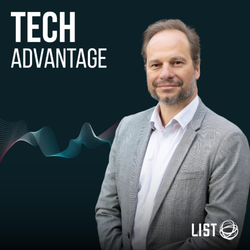
1. [Conversation #1] – How sustainable composites are changing the way we think of materials
26:35||Season 1, Ep. 1When we think of innovation in materials technology, we envision a landscape where cutting-edge research and creative thinking converge to transform the way we construct or manufacture and utilize materials, while simultaneously addressing environmental concerns. Sustainable composites represent one such innovation, which has been significant, to say the least, in the quest for eco-friendly and resource efficient materials.On this episode we speak to Dr Damien Lenoble, Director of the Materials Research and Technology department, at LIST, to know a little bit about these composites and how they've had a remarkable impact on various sectors.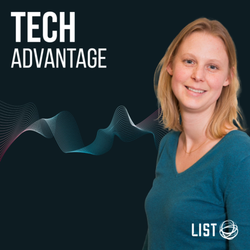
2. [Conversation #2] – How has wastewater monitoring helped the fight against Covid-19 (and other infectious diseases)?
20:42||Season 1, Ep. 2View transcriptWastewater surveillance and its use in determining the status quo of the health situation gained particular prominence during the COVID-19 pandemic. It has proven to be an effective tool for gathering timely and valuable intelligence regardless of people's behaviour (such as their willingness to get tested, for example) and interventions (such as the implementation of containment measures). What does wastewater monitoring involve? Would such a surveillance mechanism help predict the next pandemic? We spoke to Dr Leslie Ogorzaly, senior researcher within the Environmental Research and Innovation department at LIST, to try to answer these questions.
3. [Solo episode #1] – Are your IoT gadgets secure?
04:13||Season 1, Ep. 3In our very first quick-bite episode, we delve into Internet of Things and help you make sure that your IoT devices are secure to use or to gift this holiday season.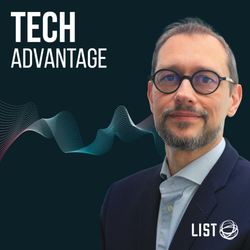
4. [Conversation #3] - The importance and the know-how of recovering waste heat to produce energy
22:23||Season 1, Ep. 4In this episode, we spoke with Pascal Moisy, Head of Communications and Corporate Social Responsibility manager at ArcelorMittal, Luxembourg, about the process of waste heat recovery and its significance. We also discussed the innovative heat-recovery optimization tool that has been the result of a longstanding partnership between LIST and ArcelorMittal. This episode is in French, the English transcript is available here.
5. [Solo episode #2] – The metaverse or how to be virtually real
05:35||Season 1, Ep. 5In the second of our short solo episodes, we take a tour of the metaverse.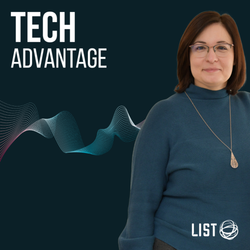
6. [Conversation #4] - On (green) hydrogen: production, challenges and opportunities
21:52||Season 1, Ep. 6In this episode, we speak with Bianca-Rita Pistillo, Partnership Development Officer at LIST, about how researchers are tackling the challenges in hydrogen production and looking into new and sustainable ways of producing the fuel, which holds significant promise as a clean energy source. The transcript is available here.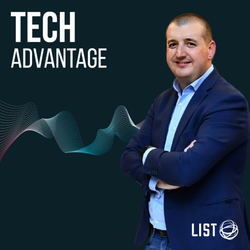
7. [Conversation #5] - Generative AI: Veni, vidi, vici?
41:12||Season 1, Ep. 7This week, we speak with Francesco Ferrero, Director of the IT for Innovative Services Department at LIST, about the advent and rapid democratization of generative AI, the role it plays in our lives and what policymakers and researchers are doing to rein it in while simultaneously making the best use of it.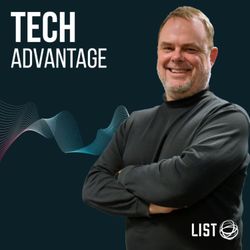
8. [Conversation #6] - The role, evolution and conservation of forests
40:53||Season 1, Ep. 8Forests are intricately linked to human life. But are today’s forests the same as people had known them before? How have they changed and what impact has this change had on us and on Earth? And what is being done to protect them? In today’s episode, Richard Keim, who leads the Catchment and Eco-Hydrology group at LIST, answers some of these questions.